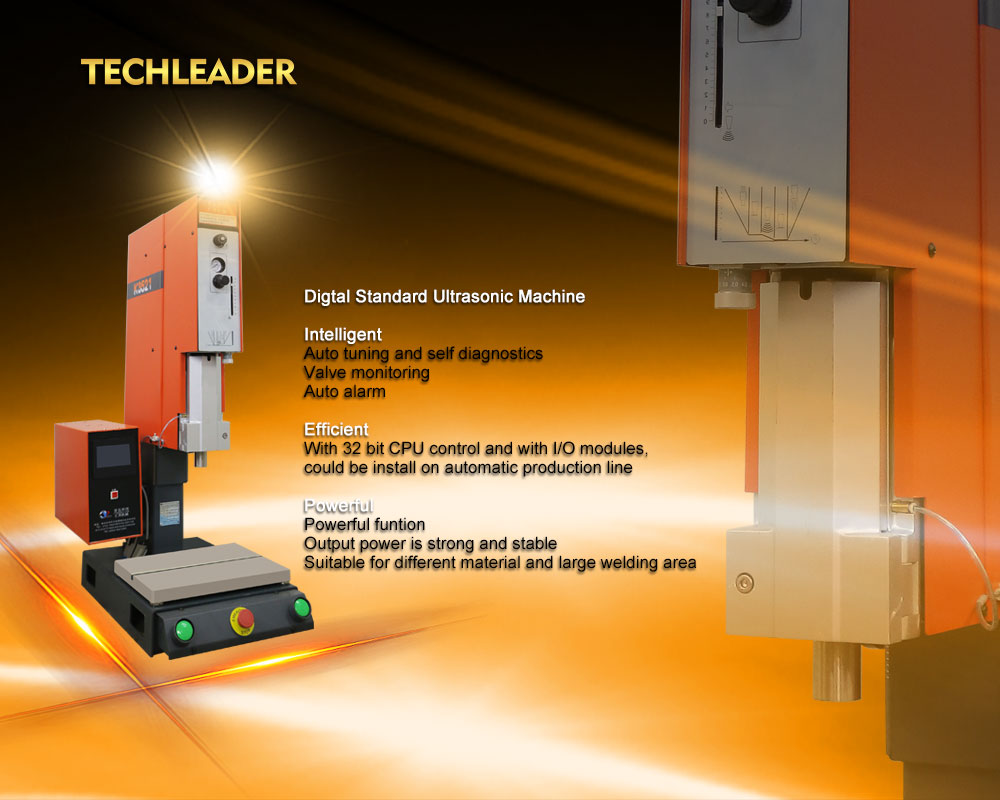Generally speaking, ultrasound refers to acoustic frequencies above 20 thousand hertz, which is the upper limit of the range of human hearing. However, these frequencies are audible to certain animals such as mice, bats, dolphins and dogs, all of which have a higher hearing range compared to humans. The inability of humans to listen to ultrasonic waves is caused by the middle ear, which acts as a low pass filter.

The ultrasonic welding machines of Huizhou Shengyang Industrial Co. Ltd offer many advantages over other welding techniques and are the most used in the manufacture of wire harnesses, electronic components and equipment. Ultrasonic welding is used when it is necessary to weld multiple layers of metal foil to a terminal or to weld together with different combinations of metals such as copper, aluminum, lithium and nickel.
Ultrasonic welding makes use of low friction welding process that produces little heat and allows better control. The basic idea is to rub the work pieces against each other while holding under pressure to make a connection. The work pieces are placed on an anvil that is knurled with fine ribs that bite the material and hold it in place during the welding operation. The ultrasound machine is then lowered onto the parts, clamping them under pressure and generating the required washing action. This tool vibrates at a frequency of twenty kilohertz for most welds and forty kilohertz for low power applications.
The washing action helps disperse the oxide layers and other impurities in the interface until the base metals are in direct contact. The atoms of the pieces diffuse among themselves and form a purely metallurgical connection.
The ultrasonic welds are limited by the size of the horn (sonotrode) from which they are made. The size of the horn, in turn, is determined by the wavelength of the ultrasound energy used. As a result, ultrasonic welds rarely measure more than 3 inches unless adjustments are made to the welder or special shapes such as spot welding or rotary speakers are used.
Ultrasonic welding techniques are used in various industries, for example, B. in pharmaceutical, medical, food, cosmetic, domestic and personal care. They have made it possible to eliminate minor defects in products during the production process that, if left unchecked, can affect the brand value of a product or company.
In ultrasonic plastic welding, high frequency sound waves generate internal friction in the parts, which heat and join the plastic parts. This is a fast welding process and can be performed without interruption for long periods of time.
Welded plastic parts are relatively less stable than welded metal parts. Plastic welding is only carried out in cases where it is very difficult to obtain a replacement, or in cases where the lack of availability of the plastic component can affect the production or manufacture.
Plastic welding techniques involve a hot gas welding process in which hot air is directed to the films to be joined, thus converting them into the liquid form.
For more info about the automatic screw locking machine and automatic welding machine,please kindly contact us as below:
Contact:
Person: James Yuan
Company: Huizhou Shengyang Industrial Co., Ltd
Add: 5th Floor,D Building,Jintaiyang Industrial Zone,Xingye Road,Zhongkai District,Huizhou,Guangdong,China
Tel: 86-752-6682869
Mobile:+86-13352636504
Person: James Yuan
Company: Huizhou Shengyang Industrial Co., Ltd
Add: 5th Floor,D Building,Jintaiyang Industrial Zone,Xingye Road,Zhongkai District,Huizhou,Guangdong,China
Tel: 86-752-6682869
Mobile:+86-13352636504
Blog:https://flipboard.com/@automaticchina/automatic-ultrasonic-welding-machine-and-automatic-screw-tightening-machine-33llvud4y
Email: info@automaticchina.com
Site:https://www.automaticchina.com/product-category/ultrasonic-welding-machine/
Email: info@automaticchina.com
Site:https://www.automaticchina.com/product-category/ultrasonic-welding-machine/
No comments:
Post a Comment